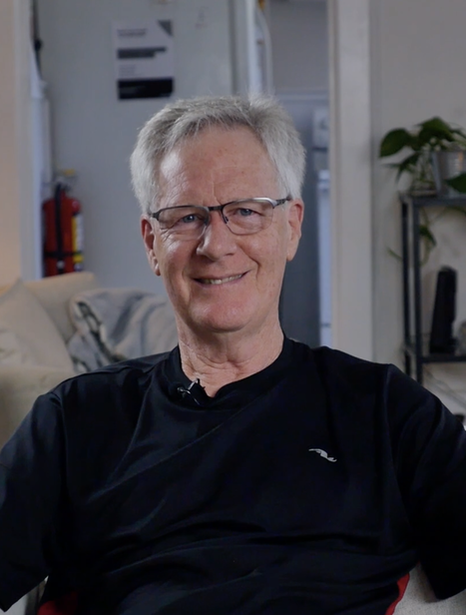|
7/29/2021 1 Comment ReconciliationChristine Olding
Reconciliation … a long word, which I think is fitting. It is a process that requires time and intention to be successful and highly values relationship when done well. It requires both parties wanting to understand and value the other’s journey and pain. The willingness to walk in someone else’s shoes, to empathize with their process. This requires listening, and humility, the willingness to admit we do not understand someone else’s heart fully. A real desire to know someone. That we may have got it wrong, that we may have reached incorrect conclusions, that we may have judged someone, labelled them ignorantly, overly simplified their character because we did not choose to understand their heart. Reconciliation is not easy, and in order to be successful it must be fuelled by love and a deep desire for relationship. It is a goal that is not void of justice but prefers the higher goal of relationship, where mutual honour and humility are the foundation. God’s heart is for relationship, always. We were created to be in relationship with Him first, and then with others, and part of preserving relationships and growth is learning how to overcome damage that our inevitable failings in relationship will cause. Without learning how to walk through the process of reconciliation, relationships are doomed to remain superficial or even end through an inability to heal. We see this in families, between friends and groups of people, even countries. However, we cannot move towards reconciliation without fully owning the damage that has been done by ourselves to others. That means no excuses, no minimizing, no avoiding taking responsibility, no victim blaming and no denial. When we are in the wrong, whether through our inaction or through action, we need to fully own it, and validate the other’s pain. This cannot be rushed. A person’s pain is validated by listening to them and giving them a voice. If we value someone deeply we will we need to listen. Really listen to their heart, their pain, their perspective. The goal is to understand. You don’t always have to agree, but you do need to empathize with their pain. However, the question to ask yourself is this: have you cultivated a character that is safe to be vulnerable with? Note I didn’t ask how you see yourself, rather how others see you. After all, the goal is to be in relationship with others. Not with ourselves. I want to stop here for a moment and ask…. Are you reading this thinking of someone else? Because if while reading this your thoughts are moving towards the wrongs done to yourself, and how you wish they would read this. May I humbly suggest you stop reading and come back to this later? As long as we focus on how we wish others would change, and what others are doing wrong, we miss the very real and powerful chance to be part of the solution ourselves. By focusing on the one thing we can control that we have complete responsibility for: ourselves. Reconciliation also means asking for forgiveness, directly, when we have done harm. Not because we are owed it, but because in asking for forgiveness we are acknowledging our wrongdoing, and that we are in a place where we need forgiveness. It is vulnerable, because it places us in a position not to be forgiven by whomever we have hurt. We may come face to face with the real possibility that the other party does not value the relationship as much as we do. And as horribly painful as that is, we know we will always have the forgiveness of our Heavenly Father, and the chance to grow and bless people even if someone chooses to close the door on relationship. We can still be part of God’s solution. If reconciliation is an option, it will not involve punishment, but it often involves restitution. Before you react to that statement hear me on this. Punishment’s goal is justice only, often fuelled by revenge, a wrong for a wrong. Punishment by its very nature encourages correct behaviour out of fear of a deterrent; it does not encourage a safe place to grow out of our wrong behaviour. Restitution operates from a recognition that we may not be able to make “right” what we have done, but we are fully committed to working on not repeating our mistakes again. And that commitment involves sacrificially building bridges and changing ourselves and our behaviour to make things right from our end. Restitution has as its goal restored healthier, healed relationships.
1 Comment
Bruno Ierullo Dear Friends, I have had this burning desire the last couple of days to share what I believe the Lord is stirring up in my heart to write to you. It is with sorrow that I write this as I feel these days have created a lot of division in the body of Christ. Call it a shifting, shaking, whatever you like, but I believe we, as the body of Christ, have become comfortable with dishonouring the Word of God and each other. Without moving into a lot of detail I sensed an urgency to repent before God in an identificational way for how we have misrepresented the heart of God, our Father, to the world and to one another. Please join me in this plea for forgiveness. I believe the Holy Spirit has highlighted the areas that I am asking for forgiveness, in what I am subtitling as, The Plea of the "Ps". The Scripture Context: Ephesians 4: 31-32 Get rid of all bitterness, rage and anger, outcry and slander, along with every form of malice. Be kind and tenderhearted to one another, forgiving each other just as in Christ God forgave you. Mark 3:25 If a kingdom is divided against itself, it cannot stand. 25 If a house is divided against itself, it cannot stand. Romans 12: 17-18 Do not repay anyone evil for evil. Carefully consider what is right in the eyes of everybody. If it is possible on your part, live at peace with everyone. Prayer: Father forgive us for being prayerless and quickly taking action, oftentimes hurtful actions towards others when we should start with praying, hearing and then obeying your voice. Lord, forgive us for not making prayer our priority and praying for each other and even our enemies (Mt.5:44). Protest: Father forgive us for quickly protesting because we feel our freedoms or rights have been violated. Forgive us for not making the main thing, the main thing: preaching and living out the gospel message in spite of surrounding circumstances (Rev 12:11). Politics: Father forgive us for judging our governmental leaders. We understand the difficulty to rule and rule well. We choose to pray for those in authority and to uphold the law of the land. Help us to be a kind-hearted people, full of authority, power, and anointing of the Holy Spirit when rules of law need to be challenged in a civil way just as Paul the Apostle demonstrated in his Apostolic ministry (Acts 25:11). Pastors: Father forgive us as leaders of Your Church when we misrepresent you. Have grace and mercy upon us when we lead our flocks astray. Help us to model the heart of the Good Shepherd who is not ignorant of the schemes of the enemy but to be wise in all our ways by putting on the full armour of God. Help us to bend our knee to Your will and desire in this day and hour (Eph 6:10-18). Pandemic: Father forgive us for not understanding the times and the seasons and properly navigating through this pandemic. Give us the wisdom to overcome and to put to an end to the futile plans of the enemy. Forgive us for not placing our trust in you and believing and having hope in your ability, over and above all the things we place in priority (Deut. 28). People. Position and Personal: Father forgive as people who hold their personal positions and opinions over others in a superior or prideful way without representing the love of God as a Father. Forgive us Lord (James 4:6)! Final Prayer: Bring restoration Lord. Strengthen Your church. Bring unity and revival to hearts and to our land in Jesus' name we pray. Beth SaltI was in my 20s and had just moved. I had been job searching for a while and had a couple of interviews, but wasn’t getting any job offers. I had had some temp work to help pay the bills, but I needed a permanent gig that would be reliable. I finally got an interview at a local private school with a very kindly gentleman who asked me all the usual questions and then he said very directly, “You know, you are an excellent candidate and I am very interested in hiring you, but I honestly think you would be bored with this job. I think you should wait for something better than this.” I was completely thrown off. I just said to him, “But I need a job!” And to be honest, if he’d offered it to me, I’d have taken it.
But he was right. Two weeks later, I had an interview across the road at another school and they hired me. I worked there for 3 years and loved the job. It was the first time I was stretched in my career and it gave me great skills that I still use today. I’m so glad that kind man didn’t offer me that job! However, it taught me how hard it can be to say no to the thing that is easy and in front of you, rather than to reach for the harder or the unknown. I have seen many students I work with do the same thing: sticking with the job they have done for years and know really well (serving at a restaurant, working in retail) rather than stretch into the unknown. There are risks. It can be scary to step into a career job, and may result in waiting longer than you would want to. It may not work out right away. However, to shift into the career you’ve been training for and dreaming of, you need to start seeing yourself as working towards a “career” rather than working in a “job”. The place to start is in how you present yourself on your resume and in your cover letter. There is a skill that needs to be learned in writing strong resume content. Many students write their resume to reflect that mindset by describing their job duties. A career resume shows skills that have been developed through multiple work experiences and that can be transferred into another role. For example, a person with three years of experience in a fast-food restaurant has amazing skills in working under pressure, meeting tight deadlines, solving problems and communicating. It isn’t always easy to show those to potential employers, however it is possible to learn! Example: Morgan has worked at Wendy’s for two years as a Crew Member. She is applying to work as a Legal Assistant in a law firm. Her resume lists “Prepared food orders quickly” and “Kept restaurant clean”. Neither of these skills will be needed to work in a law office, so we can change them around to make them relevant.
Once you get the interview, you have to do the work of learning what to say and how to speak like a professional in your field, not a retail worker or high school student in a part-time job.. Every interview gives you experience. Every job gives you experience. Every experience gives you experience. Leverage what you have to get you where you want to go. And don’t be afraid to make use of career services in your community. Employment Ontario offers free careers services in most communities throughout the province. Many resources are available online and easily accessible. The process of moving into a career and out of the part-time job mindset is all in your head. If you feel ready and take hold of the opportunity, you will rise up into it. Even if you have a few flops along the way, it’s all good learning. Your attitude of being a learner and willing to try will be the best favour you can give yourself. 3/15/2021 1 Comment Aerodynamic or Ergonomic?Beth saltI used to get these two words mixed up all the time even though I know they are completely different. For some reason they seemed similar to me. Recently the Holy Spirit showed me that they are two different aspects of how we approach our lives and careers:
Aerodynamic - this refers to how objects move efficiently through air to reduce friction and drag. People with aerodynamic careers think about long-term plans and strategize to move forward. There can be many reasons for being aerodynamic, and not all of them are negative. The person may be ambitious, easily bored, want to achieve a lot of different goals, or even save for a large purchase. How do you plan for an aerodynamic career? Your long-term and short-term goals should be set and evaluated regularly to guide you along the way.
Ergonomic - this refers to systems and actions intended to minimize repetitive strain or injury due to consistent use. People with ergonomic careers intend to stay put for the long term. They may move within the same organization, but don’t intend to go anywhere else. They may put up with a number of conflicts and challenges in order to maintain the stability of a predictable situation. How do you plan an ergonomic career? Find ways to avoid strain or burnout from repetitive behaviour.
Neither of these two career paths is better than the other. They both have positive and negative sides. You may gravitate to the one that is most comfortable, but you should prepare for the possibility that you will need to pivot and accept more change (or less) than you like. See it as an opportunity for growth. God will be right there with you! 3/8/2021 1 Comment career or calling?Beth salt“Sing to him a new song; play skilfully, and shout for joy.”
Psalms 33:3 NIVUK There is a traditional school of thought that a calling is one of the Biblical, trusted job titles: ordained ministry, missionary, evangelist, worship leader, Bible teacher, etc. Anything that is not one of these, is a job. A career is traditionally considered a path of (usually related) jobs over time. We need to take back the idea that careers are not callings and vice versa. Why couldn’t God be the Author of this process, leading us and guiding us along the way? Career advising encourages us to review our interests, personality traits, and strengths to paint a picture of a suitable career. However this leaves out the Christian worldview considering how we were designed and gifted by our Heavenly Father. Because most spiritual gifts assessments are focused on the spiritual gifts outlined in the Bible, I recommend considering a secular career assessment that considers your personality, interests and values. It is worth paying for a professional to guide you through the process if you have no idea which direction you want to go. Your local community college probably offers assessment to community residents for a fee. But your identity, spiritual (and natural) gifting and unique creation must be part of your consideration in finding a calling. Here are a few questions to work through before the Lord. Make time and space to listen and write what you hear. 1. What keeps coming up over and over? In what areas do friends come to you for advice? What are you known for? 2. What makes your heart happy? If it’s sleeping, then think of something else… 3. What words have been spoken over you - either directly from significant Bible verses, prophecy or experiences you have had in God?
If you can’t think of anything, ask your close friends who have known you a long time, or ask a family member who knows you well and who you trust. You have to weigh everything to check that it lines up with who you know yourself to be and what the Bible says, but it can be useful to seek input from someone else. Above all, know that your Father in heaven has input on this too. If you ask HIm, He will tell you what He sees. The men who built the tabernacle in the desert were craftsmen with established careers . When they stepped forward to create parts of God’s meeting place, it was a calling from God himself, and an act of worship. “Then the LORD said to Moses, ‘See, I have chosen Bezalel son of Uri, the son of Hur, of the tribe of Judah, and I have filled him with the Spirit of God, with wisdom, with understanding, with knowledge and with all kinds of skills – to make artistic designs for work in gold, silver and bronze, to cut and set stones, to work in wood, and to engage in all kinds of crafts. Moreover, I have appointed Oholiab son of Ahisamak, of the tribe of Dan, to help him. ‘I have given ability to all the skilled workers to make everything I have commanded you:” Exodus 31:1-6 NIVUK Their skill was raised to far more than they could have ever imagined. I love that God even thought of gifting Oholiab to help Bezalel - it was too big a task for just one man. God’s plan for your career exceeds your imagination. What is He calling you to? It may be something unexpected, or it may be something you knew all along. Know that whatever it is, it will set your heart on fire. Be bold and grab hold of the calling you have in Him and in your career. You can find Beth Salt on youtube at: https://www.youtube.com/channel/UCw6K2sBVkVJmxI68lev2bnA Jeff & Jayleen CHarlotWe have created beliefs about money and, fortunately or unfortunately, they have shaped our circumstances. We hold the capacity, with the help of the Holy Spirit, to bring healing into our financial soul and all its avenues. But it’s just not focused on spending; it goes even deeper than that – saving, investing, giving, recreation, planning, and especially our experience with God’s generosity. In the book, Hicks writes on how to change our beliefs and goes deeper into some of these topics. Just a couple things that impacted us in the book were discussions of receiving, gratitude, generosity, forgiveness, and being a cheerful giver. Hicks writes that our difficulty with receiving is an outcome of our fallen state, right from Adam & Eve. We truly believe that we not worthy of good things. Both Jeff and I being givers, receiving was always a difficult task. With the help of God and through loving each other, we have learned that it goes so much deeper.
Walking in thankfulness goes beyond restoration to a transformation from within. Something Hicks says about this really is a truth bomb: he shares that until we have gratitude in our heart, we cannot respect what we possess, cannot cultivate what we have, cannot share our best, cannot have confidence, and cannot be ready for more. Gratitude is so much more than just saying thank you: it’s a posture of the heart. In the book, he gave this really cool analogy on forgiveness. Thinking of your financial distress as a wall. The door is love and the key to open that door is forgiveness, the kind of forgiveness that unfolds into grace, resilience, new life, and even gratitude. Forgiving each other and ourselves while moving forward after learning how to budget as a married couple was freeing. As we had love in our hearts towards each other, there was a wall that tumbled down: financial uncertainty. Looking back over this past year, we can say that we have come far with trusting ourselves with money. Another thing that Hicks does throughout the book that we love is give practical activations and powerful declarations. We haven’t had a chance to do this yet, but we are excited to see what it will come from it and are curious about how we would feel. For example, if you have a large amount of money in your wallet ($200) for a certain amount of time (one week) and you are to be aware of its presence, but don't spend it. How does it feel just having it there? God originally intended for us to work out of the “knowledge of good” and the generosity He has let us experience. He will make us rich in every way so that we can be generous on every occasion. But it's not God’s goal to make us rich, it's for us to be generous. God loves a cheerful giver. Hicks wrote in the book that “cheerful” means something like this, "to sparkle cheerfully, like sunshine reflecting on a flowing river of prosperity." Being a cheerful giver is supposed to feel like that and even more. We would say that the best quote of the book was: “The more willingness you invest, the more generous and expansive your outlook and feelings, the more you will notice, experience and even attract God’s willingness, generosity, and expansiveness. This is about you choosing your emotional state: specifically, thankfulness, celebration and joy. Rather than depending on other people, or circumstances, to shift in order to accommodate you and provide you with joy, you choose joy. Why wait for the rest of the world to get around to giving it to you?” 2/8/2021 2 Comments Stewarding your financesRichard PaulHello, my name is Richard Paul, and I am the founder of RJP Bookkeeping Services which is based out of Stayner, Ontario. RJP Bookkeeping Services focuses on personal tax return preparation and on small to mid-sized businesses, providing them with both bookkeeping and corporate tax planning.
I was born at old RVH in Barrie in 1983, and was raised in Stayner as the eighth generation in my family to live in this area. The funny thing is, I don’t recall why I ever chose accounting. My favourite TV show was Dallas, which I found fascinating purely from a business point of view. Honestly, I didn’t care for the drama in the story line! It was then that I decided I wanted to become a businessman. When I was 15, I was diagnosed with a neuro-muscular disease called Chariot-Marie-Tooth, which affects my hands and feet. I had surgery on my feet in grade 11 and that laid me up for six weeks. During that time, it was tax season and my parent’s tax preparer had just retired. I was bored so my parents told me give it a shot and do their taxes. I found I really liked doing taxes and soon found myself doing them for the rest of my family and then later, family friends. I excelled in business studies during High School, and even won an award for entrepreneurship. I took that passion to Georgian College and graduated with a Business Accounting diploma. I have worked in a variety of types and sizes of companies since then. I have been running my own business for the last 10 years while continuing to stay up to date on current tax and finance policies and regulations. Now you know a little bit about me! Now, let me share some tips about personal vs. business expenses and how to keep yourself organized in both areas . The number one thing you need to do is keep your money separate. Have separate bank accounts, even if your business money isn’t kept in an account labelled business by the bank. This is a hard thing to do, especially when first starting up. I currently have both personal and business accounts and credit cards. Although I try hard very hard to keep purchases separated, sometimes an order from Staples, for example, is for both personal and business. It’s okay however, because you can still expense a purchase to your business from your personal account. Do your best not to use your business account for personal purchases and vice versa. If there isn’t enough money to cover the cost of the purchase either transfer the money between accounts or don’t make the purchase. This means you need to have a solid business and personal budget, but that’s a whole other conversation! You also need to have a separate filing system for business and personal expenses. Whatever you do, do not use the shoebox method. Use file folders please. It doesn’t have to be fancy, but the sure-fire way to piss off an income tax preparer or bookkeeper is to bring a shoebox into their office. When you are organized from the start, it can save you time, money and lots of aggravation. This is especially true when it comes to required government filings (i.e. HST, Income tax etc.) or if you ever get audited. Here are some tips to always follow:
Finally, if you have any questions, please don’t hesitate to email me at richard@rjpbookkeepingservices.ca 1/25/2021 0 Comments Intentionally DesignedChristine oldingImagine trying to walk on your thumbs all the time. Big sweaty feet dangling above your head. I hope you’re smiling. I know I am. It doesn’t work well to rely on parts of your body for jobs that they were not designed for. We barely think about the design of our bodies when they are working well because God perfectly designed us each with a body containing specialized parts. Some parts are multi-tasking, some are not. The human body is wondrous and we trust its design!
This sounds like an obvious fact to mention, and I wish we didn’t need to hear it, but just as God created our physical bodies, He also perfectly designed the Body of Christ. He knows what He is doing! But do we trust Him? Do we believe that His design for the body of Christ is best? It is so easy for us to be caught up in what is directly in front of us. The latest crisis, those real needs closest to our heart, injustices that we see around us. Does He have a design for us to follow? If we are not careful, we can end up in a huge game of “who is more right” regarding what we should do that does not end up feeling like a game at all. How does God call us as a body of believers to operate together, when we are as diverse in our giftings as we are in God’s plans for us? How do we know what role God is calling us to in the body of Christ? We start with Him. We are first called to be in relationship with God: Abide in me, and I in you. As the branch cannot bear fruit by itself, unless it abides in the vine, neither can you, unless you abide in me. John 15:14 Then with each other: And they devoted themselves to the apostles' teaching and the fellowship, to the breaking of bread and the prayers. Acts 2:42 Then the world: Therefore go and make disciples of all nations, baptizing them in the name of the Father and of the Son and of the Holy Spirit, and teaching them to obey everything I have commanded you. And surely I am with you always, to the very end of the age.” Matthew 28:19-20 But how does this apply to us individually? We are all called to be active members in the body of Christ, each called to contribute towards its edification and growth with Christ at the head; there is no room for passivity! “When you come together, each of you has a hymn, or a word of instruction, a revelation, a tongue or an interpretation. Everything must be done so that the church may be built up. 1 Corinthians” 14:26 What does that look like practically? Paul refers to many roles in the body of Christ, such as... "So Christ himself gave the apostles, the prophets, the evangelists, the pastors and teachers, to equip his people for works of service, so that the body of Christ may be built up.” Ephesians 4:11-12 And this doesn’t even include roles listed in 1 Corinthians: "And God has placed in the church first of all apostles, second prophets, third teachers, then miracles, then gifts of healing, of helping, of guidance, and of different kinds of tongues.” 1 Corinthians 12:28 Now add to this the marketplace, family roles, government and a host of other callings and we can see how we truly need God’s guidance to know what our role is to be. Or we risk being directed by the loudest influence in our lives. Partnering with God’s direction for our lives brings empowerment; partnering with any other voice does not. “The steps of a man are established by the Lord, when he delights in his way” Ps 37:23 Can you imagine if a Godly woman like Mother Teresa had been asked to work in an office all day? Administration is a wonderful gift (one I do not have by the way), but the poor would have lost a spiritual mother had she been asked to be a secretary. God knows how He made each of us, and designed us to operate out of His plan for us; this revelation comes out of relationship with Him. In a time of great need such as now, can I encourage you to find your place first with God and let Him direct your steps? There may be many needs around you, but you will bear the most fruit if you partner with what God is calling you to do with Him. ""For I know the plans I have for you,” declares the Lord, “plans to prosper you and not to harm you, plans to give you hope and a future.” Jeremiah 29:11 To prosper you, to give you a hope and a future, this is what He says. Trust Him! 1/18/2021 0 Comments Plumblinechristine oldingWhat guidelines do you use to determine if things are running successfully? For some it might be a lack of conflict: “No one is mad at me so life is good”. For others it might mean that all your bills are paid. Others might decide that if there are conflicts or difficulties, they must have made a mistake somewhere. Or do we think things are going well based on how much praise we receive?
My point is that we all use some sort of measuring stick to determine how well we are doing. Some of our methods are healthy, some not. Determining how we are doing and keeping abreast of this is very biblical. It's called discernment and we are called to consistently be growing in our ability to discern what is happening around us and in us. “But solid food is for the mature, for those who have their powers of discernment trained by constant practice to distinguish good from evil.” Heb 5:14 But what guidelines has God given us? Proverbs abounds in wisdom concerning acquiring knowledge and the New Testament gives us some valuable guidelines to test the condition of our hearts and lives by. First, a caution. Proverbs states clearly “The way of a fool is right in his own eyes, but a wise man listens to advice.” Proverbs 12:15 Therefore, do not presume to be flawlessly self-aware, but seek those you trust who are without agenda, to help you gain insight into yourself. You might think you are at peace but if everyone is walking on eggshells around you, you might not be as healthy as you thought. What are some of the signs that we are doing well, that we are in a good place with God and have not wandered off track? The fruit of the Spirit is a good place to start. “But the fruit of the Spirit is love, joy, peace, forbearance, kindness, goodness, faithfulness, gentleness and self-control. Against such things there is no law.” - Gal 5:22-23 Another sign is our ability to operate out of a place of rest. Jesus promised us that His yoke was light. He hasn’t changed. He promised us rest and a light burden, not a never-ending cycle of burnout and recovery. So, how are you doing? Have you accepted the lie that there is just too much to do and exhaustion is a fact of life? Or is your ability to walk in love and peace strained? I know, for me, these are good signs that I have strayed away from walking with God and instead picked up my “saviour cape”. I mean, if I don’t step in and help and save people who will? Catch the joke? It’s hubris to think I should be in the position of being the only one that can help, and even if I am, sometimes rushing in can do more damage than good. Sometimes things need to fall apart in order for change to occur. When we take on the responsibility for the growth in God’s Kingdom, we place ourselves in the role of God. For He says very clearly: “And I tell you, you are Peter, and on this rock I will build my church, and the gates of hell shall not prevail against it.” Mat 16:18. God is building His Body, His Church, not us. Our job is to follow Him. And Jesus promised our yoke would be light. How can we hope to acquire the fruit of the Spirit that Galatians talks about out of a place of exhaustion and busyness, prompted by a misplaced belief that we are responsible for more than we actually are? Personally, I can usually tell if I am off track with God when I get cranky and stressed, when I begin to become judgmental of others’ lack of “help”, or when my family begins to feel neglected. If I start making my commitments to serve outside my family greater than my relationships in my family, I’m in trouble. And so is my family. Now things like tragedy and crisis can take our toll on us as well. Sometimes a crisis can momentarily swamp us and we need to give ourselves grace. But God’s peace and rest is always available to us, otherwise we would be limiting Him to the role of a fair-weather friend: only useful and faithful in the good times. If we look just as exhausted and stressed as our neighbour, if our children and families are just as neglected, if our spouses are just as lonely, what does that say about the God we claim is so wonderful? The people we are helping may love us, but do our families see the same person? Take time at the beginning of this year to read His view on your responsibilities in His word. Have you taken on a bigger burden than He intended? Do the fruit on the Spirit show up easily in your life? Or are they only for the public? Those that know me know that I regularly give God my imaginary day timer and ask Him what I have taken on that I need to stop doing. And if I don’t do that, my family reminds me to. For some, this may be adding to your days instead of removing things. Either way, holding our lives up to God’s word instead of others’ opinions or our own expectations will provide an excellent plumbline to get back to walking in God’s peace and presence if we have drifted away. Then we will really be living testimonies of His faithfulness. 1/11/2021 0 Comments New yearchristine oldingI thought about calling this “New Year…New Start”, but I really believe that the new start has already begun. It actually began over 2000 years ago, with a radical new mindset that God was a Father available to all, a God who loved us, wanted to be in relationship with us, and whose love was unconditional, free of guilt, shame, demands and abandonment. This is a love that honors our free will; we can accept it or not from a God who will not manipulate or control us to get our acceptance. It is a safe love. No wonder the new church accepted this with an almost fanatical passion! This was a love available to all ethnic groups, genders and economic brackets. You don’t have to agree with God to be loved by Him, but it is impossible to accept His love and follow Jesus without agreeing with who He is. How do you follow someone without agreeing with them? To do that involves denial, domination, deception and a host of other unhealthy dynamics. And that’s just not who Jesus is. He wants us to know who He is, who His Father is, and then decide if we will let Him be Lord of our lives, or to use modern language, “to be in charge” of everything in our lives, thoughts, and hearts. He doesn’t take away our freedom, He just asks for the steering wheel. Then He provides freedom with the knowledge that we cannot lose His love and we are always free to say “no”.
The new church was so passionate about believing who Jesus was, that they jumped in with both feet. They followed Jesus and held nothing back. They sold everything they had to make sure none of them were without what they needed. “All the believers were together and had everything in common. They sold property and possessions to give to anyone who had need.” Acts 2:44-45 They met together, corporately, each contributing something when they met. “What then shall we say, brothers and sisters? When you come together, each of you has a hymn, or a word of instruction, a revelation, a tongue or an interpretation. Everything must be done so that the church may be built up.” 1 Cor 14:26 It was not passive; it was dynamic. No wonder they stood out as different! What group that takes care of its own is not attractive? Passionate about the nature of Jesus and their everyday access to the Father, they chose to follow Him. Fast forward to 2021, and I still see passion, and a fervent call to leave passivity and the familiar behind. The activity of the Body of Christ is not a spectator sport, and it is not limited to a building or event. It is a dynamic growing entity infused by God’s presence, whether in the workplace, the home, over dinner, or where any group of believers meet. Where God’s presence reigns, there is no fear, or domination but there is unconditional love offered independent of agreement, independent of your performance. There is a freedom to say no and to still be loved, and there is a light burden for those who say “yes”. “Take my yoke upon you and learn from me, for I am gentle and humble in heart, and you will find rest for your souls. For my yoke is easy and my burden is light.” Mat 11:29-30 For we are not building our church, but He is building His church. And there is a recognition that we are not a building, we are not an event, we are a body of believers making up the Body of Christ. Is this easy? No, it's actually impossible without God. And since we are far from perfect, we make mistakes, so forgiveness and humility are key. The forgiveness He constantly shows us has to be constantly extended to others, something we cannot do unless we allow Him access to our lives, hearts, and minds. It’s a dynamic thing really, to grow while fully following God, then fall flat, let Him restore you, then grow again. There is no room for fear or passivity in growth. It is full of creativity, excitement, and change. As we start our new year, I encourage you to return to your Bible, immerse yourself in the culture of the biblical Body of Christ, and risk throwing everything into God. It is radical, it is for everyone, it is creative, and it is without fear because you cannot lose the love offered. |
Blog Authors Christine oldingClaudia OngoBruno IerulloRichard PaulRob ReidJustin madoniaSteve OngoArchives
August 2023
Categories |







 RSS Feed
RSS Feed